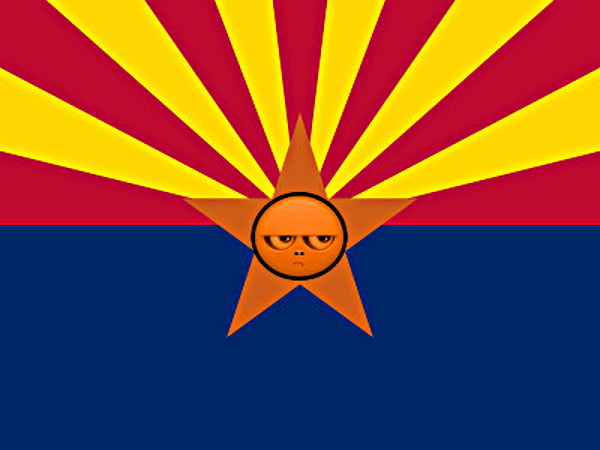Permanent Injunction for AZ Revenge Porn Law
 PHOENIX – In what amounts to a permanent extension of a prior agreement between the office of the Arizona Attorney General and plaintiffs represented by the American Civil Liberties Union, on Thursday U.S. District Court Judge Susan Bolton issued a final decree enjoining the enforcement of ARS §13-1425 — better known as Arizona’s “revenge porn” statute.
PHOENIX – In what amounts to a permanent extension of a prior agreement between the office of the Arizona Attorney General and plaintiffs represented by the American Civil Liberties Union, on Thursday U.S. District Court Judge Susan Bolton issued a final decree enjoining the enforcement of ARS §13-1425 — better known as Arizona’s “revenge porn” statute.
“This Final Decree resolves all issues and claims set forth in Plaintiffs’ Complaint and Motion for Preliminary Injunction,” Bolton wrote in the order. “Defendants, their agents, employees, successors, assigns, and all persons in active concert or participation with Defendants are permanently enjoined from enforcing, threatening to enforce, or otherwise using Arizona Revised Statute § 13-1425 in its current form.”
The decree closes a ludicrous chapter in Arizona’s ongoing effort to concoct some meaningful and enforceable measure to combat revenge porn, something that should have taken place prior to Thursday’s hearing — and in a sense, something that did happen prior to the hearing.
Passed early in 2014, ARS §13-1425 was alleged by the plaintiffs to be “an overbroad and content-based statute that criminalizes the display, publication and sale of non-obscene images fully protected by the First Amendment.”
“While the state has a legitimate interest in addressing the real harms of revenge porn, any such law must be narrowly tailored to address that problem,” the ACLU complaint stated. “The Act, however, is vastly overbroad in its reach. It is not limited to disclosures motivated by revenge; in fact, the motive of the person making the disclosure is irrelevant under the law…. It equally criminalizes posting another’s private photograph on a widely-accessed Internet site, showing a printed image to one friend, publishing a newsworthy picture in a textbook, and including a nude photograph in an art exhibition.”
After reviewing the language of the statute, some of the state’s legal advisors were inclined to concede the ACLU’s point: The law, while well-intended, likely was too broad and ill-defined to survive court scrutiny.
Hearings in November of last year resulted in the original order from Bolton, under which enforcement of the statute was enjoined upon a joint motion of the parties. From there, the plan was for the Arizona Legislature to revise the statute during its 2015 session. That plan appeared to be on track until April, when the legislature somehow adjourned without voting on the bill that would have revised the language of the statute.
The legislature’s hard-to-explain oversight sent the parties back into court last week — but this appears to be the end of the road for the case (which began life as Antigone Books v. Horne, but at this point is called Antigone Books v. Brnovich), as Bolton’s final decree serves to “resolve Plaintiffs’ claims by agreement.”
This agreement isn’t quite the same thing as not losing the case from the state of Arizona’s perspective, however, as Bolton’s order still imposes at least some of the cost the government would have encountered had it fully defended the law at trial. Bolton’s order names the plaintiffs as the prevailing party, entitling them to “an award of reasonable attorneys’ fees and costs against defendant Attorney General…in an amount to be agreed upon by the Parties and, absent agreement, to be determined by the Court.”
Rep. J.D. Mesnard [R-Chandler], who offered the bill that didn’t get voted on in April, says he’ll try again when the legislature resumes in January.
One hopes the legislature will get it right this time, in part because revenge porn cases in the state continue to stack up in the meantime and in part because if legislators again author an overly broad, vague, constitutionally flawed statute, you can bet Arizona’s bottom dollar the ACLU will take the state to court all over again.
This is not to say a challenge from the ACLU is assured no matter what, though, as the group has made it clear they don’t reflexively oppose such legislation, so long as it has been crafted with due care.
“We’re taking a look at all the laws to see if any go too far,” ACLU Staff Attorney Lee Rowland told ARS Technica. “The ACLU isn’t out to attack revenge porn laws. There are some laws that have been passed to criminalize revenge porn that don’t create the acute problems [of ARS §13-1425].”













